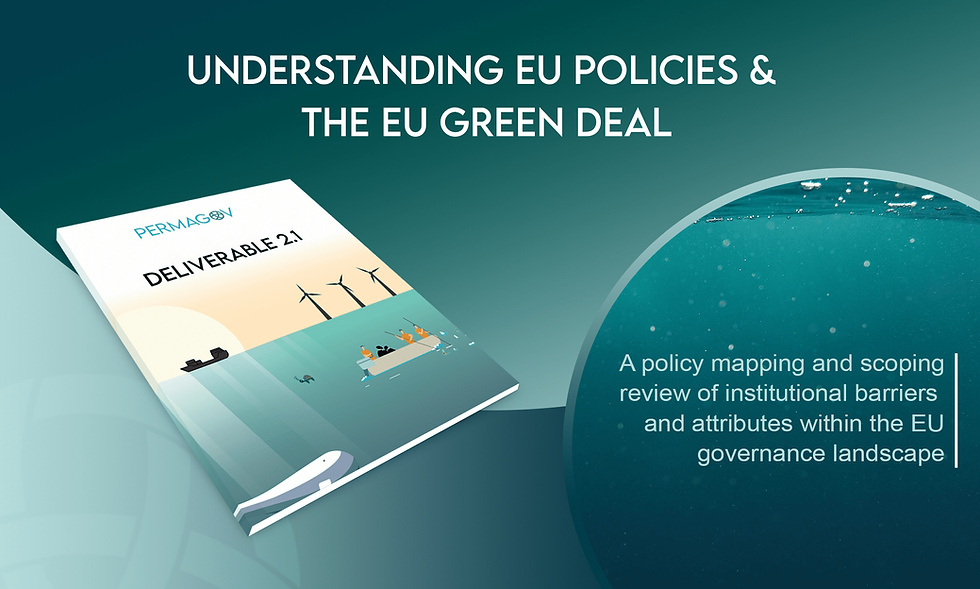Get Ready for the Ocean Pact With PERMAGOV
- Nov 8, 2024
- 3 min read
Exciting times lie ahead for marine governance.
This November, a new Commissioner will take over the Fisheries and Oceans portfolio. Most likely it will be Costas Kadis from Cyprus, but whoever becomes the new policy maker, in this cabinet and future ones, delivering the European Ocean Pact will be their main priority for years to come.
Probably inspired by the Rural Pact adopted a few years previously, the Ocean Pact will provide a roadmap for building sustainable, competitive, and resilient blue economy in the EU.
The actual document is not due until June 2025, but already lots of ideas have been proposed by various interest groups to shape the focus of the forthcoming deliverable. Two different manifestos produced by Seas at Risk and Europe Jacques Delors are just some noteworthy examples that stand out.
No manifesto yet from PERMAGOV, however we do have other interesting results to share with those who are equally passionate about marine governance and want to do something about it (read improve).
Whether it's supporting the Ocean Pact or European Green Deal (EGD) more generally, we're excited to provide you with resources from the consortium to help you get started.
Institutional barriers

Imagine.. the ocean gave you the power to improve marine governance. Specifically, to address some of the persistent institutional barriers that hamper effective policy performance. Which ones would you tackle as a matter of priority?
PERMAGOV is developing a diagnostic tool to help marine experts, practitioners and enthusiasts understand how barriers manifest themselves in shipping, offshore wind energy, and in the management of MPAs, seabed, and marine litter.

Institutional barriers can take many forms, from power imbalances and lack of clarity about roles, to path dependence and mismatch between problem scale and institutions involved. Persistent institutional barriers hinder more experimental approaches needed to test/adopt novel solutions for effective marine governance.
The diagnostic tool was developed based on, among other things, a comprehensive review of literature on institutional barriers in the European marine context. As part of this work, 82 articles were analysed.

The policy brief summarises the main barriers found in the nine PERMAGOV case studies across the four marine regime complexes (transport, life, energy, litter), with a call to action provided at the end.
Marine governance arrangements

The way in which ocean affairs are managed is influenced by an intricate web of governance arrangements (GA). These arrangements have entrenched characteristics that make change and innovation easier said than done. Also, the trans-boundary nature of marine governance and competence fragmentation observed along the national, EU and IMO lines further complicate GA's transformation.
And yet existing arrangements need to evolve if EU's climate objectives are to be achieved. The report explores how governance arrangements in marine transport, life, energy and plastics are adapting to the new reality shaped by the EGD.
EGD policies and marine governance

Marine governance needs to evolve if we are to achieve climate objectives under the European Green Deal. But how do we move forward with this improvement given EGD’s complex, onion-like structure and intricate connections to land-based activities?
Knowledge is power as they say, so the first step is to try and understand which EGD policies have a bearing on marine governance. In this report, we remove EGD’s complexity layer by layer, breaking it down into 3 constituent parts - EGD elements, high-level strategies, and implementing and supporting policies - for easy understanding.













Comments